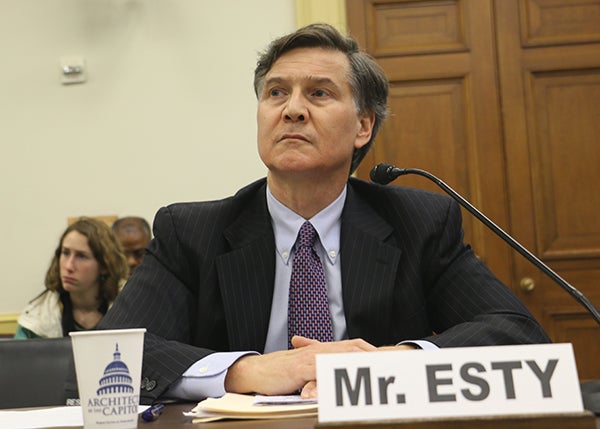While the top-down regulatory policies of the 20th century achieved critical advances in environmental protection, the challenges of the 21st century demand new strategies, Daniel Esty, Hillhouse Professor of Environmental Law and Policy at the Yale School of Forestry & Environmental Studies and Yale Law School, told U.S. lawmakers this week.

In testimony before the House Subcommittee on Environment and Climate Change of the Committee on Energy and Commerce, Esty said that the response to the climate challenge will require a multi-dimensional framework which takes advantage of advances in public health and ecosystem science, as well as the new technologies that have transformed much of American life but have not yet been fully integrated into the environmental arena, such as the internet, Big Data, and smartphones.
“To decarbonize our economy at the speed and scale necessary to tackle climate change will require a portfolio of policies — some of which entail economy-wide initiatives, including carbon pricing, but others of which might be advanced within specific sectors on a more targeted basis,” he said.
Esty was invited to testify before the subcommittee at its latest in a series of hearings on how to achieve a 100-percent clean economy by 2050. The subcommittee is chaired by U.S. Rep. Paul Tonko, D-N.Y.
Speaking to lawmakers, he suggested that this multi-dimensional climate policy framework should emphasize: